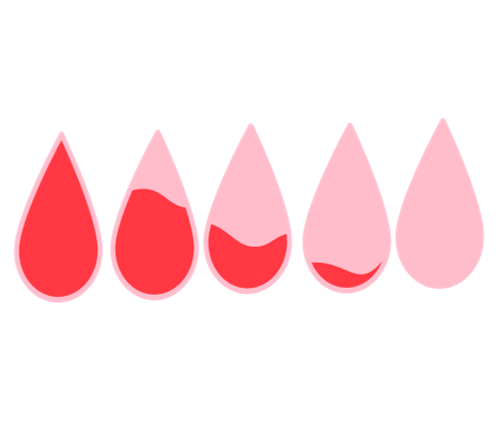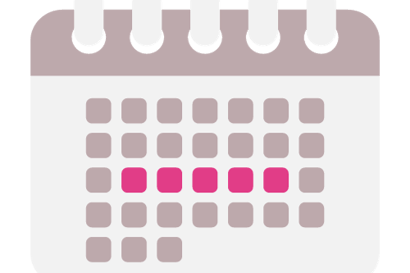What is the Menstrual Cycle?
The menstrual cycle is the name given to the monthly phases the body goes through to prepare for pregnancy. One of these phases includes menstrual bleeding, also commonly known as a period.
PERIODSGENERAL VAGINAL HEALTH
vaginalhealth.online
10/6/20232 min read


What is The Menstrual Cycle?
The menstrual cycle is the name given to the monthly phases the body goes through to prepare for pregnancy. One of these phases includes menstrual bleeding, also commonly known as a period.
However it is not just women and girls that menstruate!
People of all genders with a uterus may have a period.
BY: VAGINAL HEALTH
UPDATED: 06/12/2023
Periods . General Vaginal Health
Menstruation (Day 1-5):
The cycle begins with a period, which involves menstrual blood leaving the body via the vagina.
This menstrual blood comes from the wall of the uterus shedding away as it is not needed for pregnancy (we'll explain this more down below).
This phase typically lasts anywhere from 3-10 days.
Periods
Menstrual blood is typically red or dark red in color, and it may contain small clots. The flow can vary from light to heavy, and the duration usually lasts anywhere from 3-10 days.
Typically those with a uterus may start their period when going through puberty, between the ages of 9 and 16.
Symptoms:
Unfortunately periods can come with several other unpleasant symptoms, which are collectively known as premenstrual syndrome (PMS):
Abdominal cramps
Bloating
Breast tenderness
Mood swings
Fatigue
Nausea
Products:
To manage periods, you can use various products:
Sanitary pads
Tampons
Menstrual cups
Period underwear.
Menstrual Phases
Further reading
Sign of Fertility:
Menstruation is a natural part of reproductive health for people with uteruses.
It is important to remember that people of all genders can have a period! Having one does not affect your gender presentation, it is just something some body's naturally do.
Reproductive Health Monitoring:
Changes in menstrual patterns, such as irregular cycles, unusually heavy or painful periods, or missed periods, can be indicators of underlying health issues.
It is important to contact a healthcare professional if you are worried about your periods.


Follicular phase (Day 1-13):
After menstruation, the body enters the follicular phase.
During this time, a gland in the brain called the pituitary gland releases a particular hormone that stimulates the ovaries to develop an egg.
Ovulation (Day 14):
Around the middle of the cycle, a hormone called Luteinizing Hormone (LH) triggers the release of the egg from the ovary in a process called ovulation. This egg is then ready for potential fertilization.
Luteal Phase (Day 15 - 28):
After ovulation, more hormones in the body known as Progesterone help to prepare the lining of the uterus for a fertilised egg. It does so by making this lining nice and thick so that a fertilised egg will have the right environment to grow into a baby!
If the egg is not fertilised however, the lining of the uterus sheds away and the start of a new cycle begins.
Reproductive Health
To read more about the menstrual cycle, we recommend having a look on the following websites:
Read more about periods...
vaginalhealth.online
DISCLAIMER!!
All of the information on this website is produced off the basis of recommendation and personal experiences. Although we do our best to ensure information accuracy, we are not health professionals only people with vaginas sharing our stories. Please always do your wider research and consult a doctor or health professional before starting any treatment and making considerable lifestyle changes.
